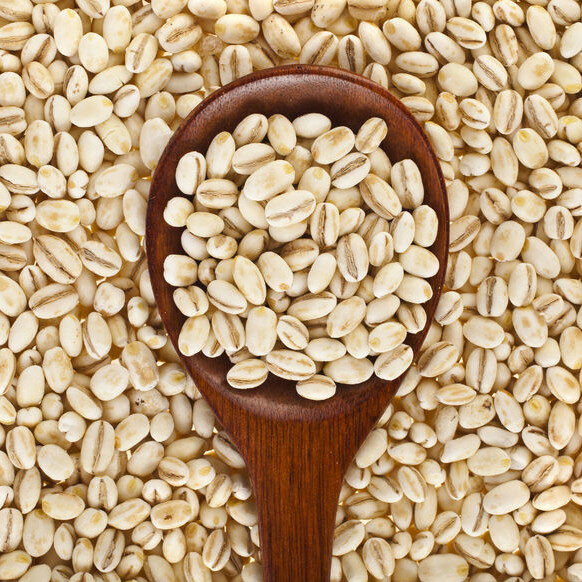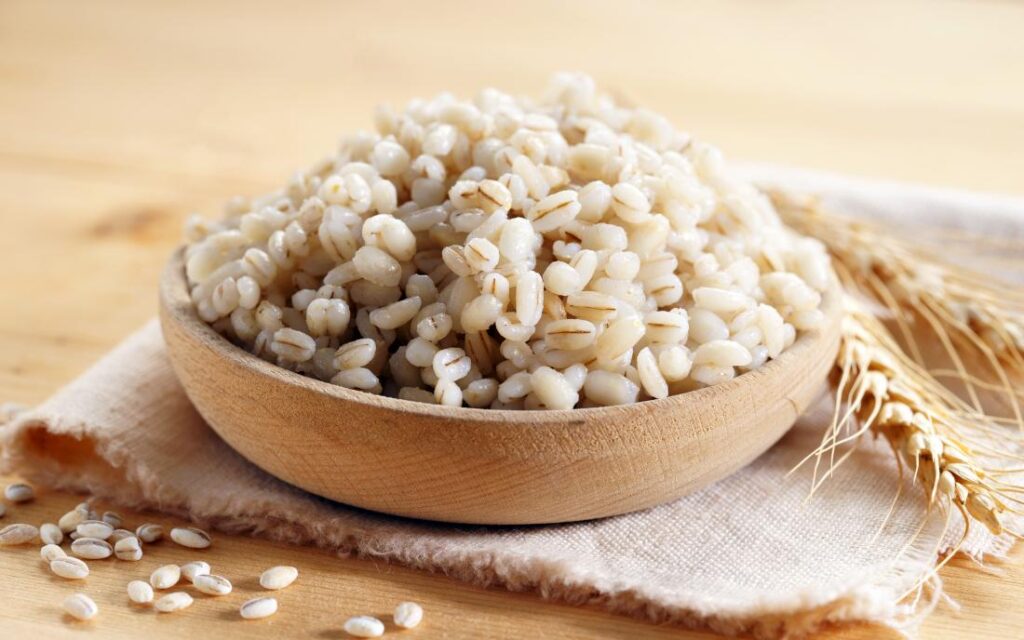Barley is one of the oldest cultivated grains, known for its impressive nutritional profile and versatility in cooking. It has been a staple in various cultures due to its health-promoting properties. Rich in essential nutrients and fiber, barley is an excellent addition to a balanced diet.
Barley Nutrition Facts (Per 100 Grams of Raw Barley)
| Nutrient | Amount | *Daily Value (%) |
|---|---|---|
| Calories | 352 kcal | – |
| Carbohydrates | 77 grams | 25% |
| Dietary Fiber | 17 grams | 68% |
| Protein | 12 grams | 24% |
| Fat | 1.2 grams | 2% |
| Calcium | 29 mg | 3% |
| Iron | 3.5 mg | 20% |
| Magnesium | 133 mg | 33% |
| Potassium | 452 mg | 13% |
| Phosphorus | 264 mg | 37% |
(*Percent Daily Values are based on a 2,000-calorie diet.)
Key Health Benefits of Barley
1. Heart Health
- Rich in Beta-Glucan: Barley contains beta-glucan, a type of soluble fiber that helps lower LDL cholesterol levels.
- Improves Circulation: Helps maintain healthy blood pressure and reduces the risk of cardiovascular diseases.
2. Supports Digestive Health
- High in Fiber: Promotes regular bowel movements and prevents constipation.
- Prebiotic Benefits: Feeds healthy gut bacteria, enhancing overall gut health.
3. Regulates Blood Sugar Levels
- Low Glycemic Index: Barley’s carbohydrates break down slowly, stabilizing blood sugar levels.
- Beneficial for Diabetics: Helps manage glucose levels effectively.
4. Aids in Weight Management
- Promotes Fullness: High fiber content keeps you feeling full longer, reducing overeating.
- Low in Calories: Provides essential nutrients without significantly increasing calorie intake.
5. Improves Bone Health
- Contains calcium, magnesium, phosphorus, and copper, which are essential for maintaining strong and healthy bones.
6. Enhances Immune Function
- Barley contains selenium, which supports a healthy immune system and protects against oxidative stress.
7. Detoxifies the Body
- Consuming barley water helps flush out toxins, supports kidney health, and promotes better liver function.
8. Boosts Energy Levels
- The complex carbohydrates in barley provide sustained energy, making it an excellent choice for athletes or those with an active lifestyle.

How to Incorporate Barley into Your Diet
- Barley Water:
- Boil barley grains in water, strain, and drink with a dash of lemon or honey. Great for detoxification and hydration.
- Soups and Stews:
- Add barley to soups or stews for a hearty texture and nutritional boost.
- Salads:
- Use cooked barley as a base for salads with fresh vegetables, herbs, and a light dressing.
- Barley Flour:
- Use barley flour to make bread, pancakes, or rotis for a healthy twist.
- Barley Porridge:
- Cook barley with milk or water and add fruits, nuts, or spices for a nutritious breakfast.
Precautions and Considerations
- Gluten Content:
- Barley contains gluten, making it unsuitable for individuals with celiac disease or gluten intolerance.
- Moderation:
- Excessive consumption may lead to bloating or gas due to its high fiber content.
- Allergies:
- Rarely, some individuals may be allergic to barley; consult a doctor if symptoms occur.
Conclusion
Barley is a nutrient-dense grain with numerous health benefits. It supports heart health, improves digestion, regulates blood sugar, and aids in weight management. Incorporating barley into your daily diet can significantly enhance overall well-being. For best results, consume it as part of a balanced diet and pair it with other healthy foods.





